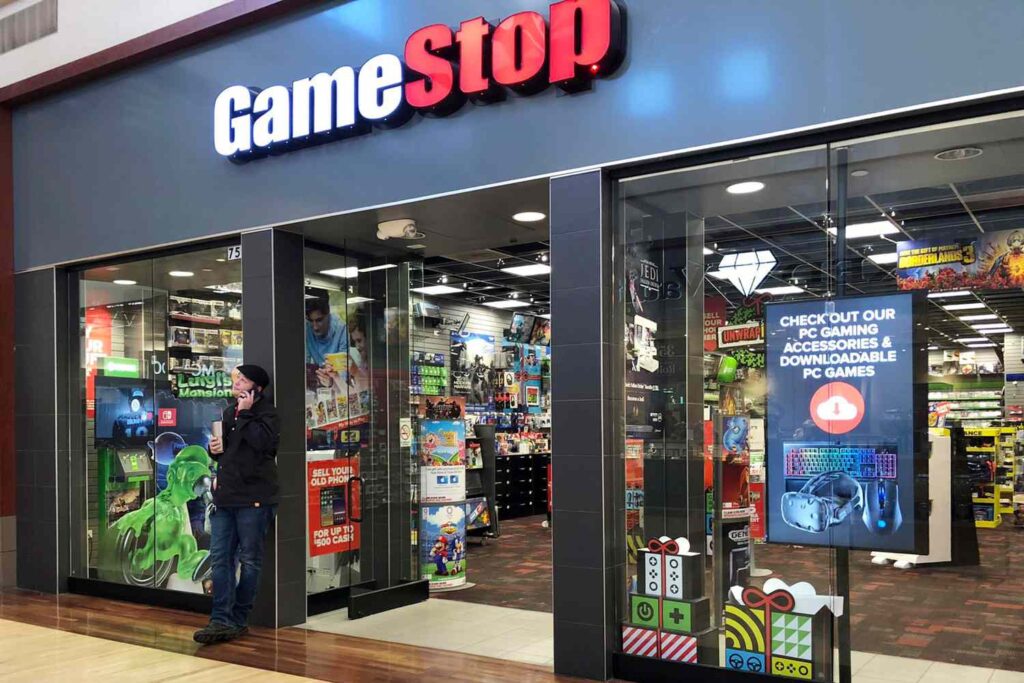On Wednesday, GameStop‘s shares took a significant hit, dropping over 14%, following the announcement of a dip in its fourth-quarter revenue.
This downturn is attributed to decreased consumer spending and heightened competition from online retailers.
The company, headquartered in Grapevine, Texas, also disclosed that it had reduced its workforce, a move mirrored by industry counterparts such as Sony and Electronic Arts, in an effort to mitigate costs amid the prevailing economic uncertainty.
This decline in GameStop’s share price could lead to a loss exceeding $700 million in market value if the downward trend persists.
To date, the stock has already seen a nearly 12% decrease throughout the year, highlighting the fierce competition in both retail and e-commerce sectors.
As of early February, GameStop reported operating 4,169 stores, a slight decrease from the previous year’s count of 4,413.
GameStop, once a dominant force in American shopping malls, gained notoriety as a key player in the meme stock phenomenon.
Its stock value soared exponentially in 2021, driven by a wave of individual investors from the Reddit community forum WallStreetBets.
This surge came despite broader market skepticism and a lack of substantial corporate success to back the inflated stock prices.
However, as meme stocks regain attention through other entities like Donald Trump’s media company, which saw a substantial increase following its Nasdaq debut, GameStop appears to be losing momentum.
Investment director Russ Mould remarked on the situation, stating, “No sooner has the meme stock craze been resurrected… it’s somewhat ironic that the grandfather of meme has fallen flat on its face.”
Mould criticized the company’s lack of transparency and reluctance to engage in a post-earnings conference call, suggesting that management might be avoiding public scrutiny.
Despite achieving its first adjusted per-share profit in four quarters, GameStop failed to inspire confidence among its investors.
The company reported earnings of 22 cents per share on an adjusted basis for the quarter ending on February 3, following a break-even in the third quarter, an achievement that did little to counterbalance the broader challenges it faces.
